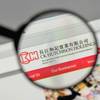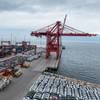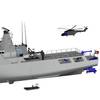WWL unease over what 2017 might have in store!
It creates a certain unease over what 2017 might have in store for us, given that the words have gotten bigger and the tone sharper in both political and diplomatic dialogue across the globe. It certainly makes practicing the dark art of making predictions of the future even more terrifying than usual. However, there are a few topics that appear more than certain to be part of the 2017 tapestry than others.
The rise of protectionism
The outcomes of both the Brexit referendum as well as the US election both stem from the same core. The disenfranchised groups in society, who have seen their jobs disappear and their economic foundation eroded, blame globalization, trade and open borders as the cause of their situation. This has created fertile ground for populist arguments that have echoed wider in the society, changing the political landscape as a result. This is increasingly coloring the entire political discourse, and we should expect this trend to continue also in 2017. Both the German and French elections are likely to be influenced by this trend and the question becomes if the current is strong enough to fundamentally alter the political landscape in these leading European states as well.
Disregarding how these elections turn out, the protectionist theme has been brought back into the mainstream and we might see escalations in trade barriers and retaliatory measures that undermine the global trade in goods and services. That certainly does not bode well for everyone whose livelihoods depend on global trade. However, the simple fact that protectionism mostly hurts the party raising the barriers, indicate that the real actions may not turn out to be quite as harsh as the words.
Fiscal spending – the ball is in the politicians’ court
Central bankers have been the superstars of the fight against weak economic growth since the financial crisis. There is ample reason to believe that 2017 might see the return of another protagonist: the politician. As monetary stimulus, the domain of central bankers, is increasingly being wound down or appear to lose its efficiency, the focus is beginning to shift towards fiscal spending which the politicians control.
One focus area for increased fiscal spending should be infrastructure. Improved infrastructure is certainly positive for the economy and is increasingly being seen as a way to strengthen economic growth and employment at the same time. The main challenge with infrastructure spending is generally how to pay for it. Although the investments per se are often positive, poor decisions of how to fund it will typically come back to haunt us in the future. Nevertheless, the discussion about fiscal spending, particularly in infrastructure, is all but certain to be a bigger part of the mainstream topics in 2017.
Digitalization – bursting the bubbles
It has been hard to miss the rising frenzy surrounding the digitalization of our everyday life. The lightning fast pace of development in technologies ranging from self-driving cars, artificial intelligence, machine learning or solar energy has dominated the picture in 2016, and is surely set to do so in 2017 too. Digitalization is certainly here to stay and is sure to be a factor that will influence us greatly going forward, creating winners and losers along the way. It is however also an area that is currently a little too hyped and risks becoming victim of its own success.
No, all our jobs will not be gone tomorrow even if robotization allows for automation of ever more complex tasks. Yes, we will still own stuff even if the sharing economy allows us not to. No, artificial intelligence will not solve all our analytical challenges tomorrow, despite its promise of omnipotence. Anyone who has asked Siri to “call Mary”, just to have ACDC’s “Back in black” being offered as a solution to the request, knows that there is still some way to go.
That is not to say that we will not be greatly influenced by technological developments, mostly for better. It just means that we need to view digitalization in the cold hard light of reality – what can it do, and what can’t it yet do – not inflate the hype bubble that is sure to burst at some point, to the detriment of both the technology and ourselves. When a taxi app is worth tens of billions of dollars and an app that turns your tongue into a rainbow is the most promising IPO of the year, it certainly smacks of Pets.com and the early 2000s. To go down that route again would be a shame simply because technology today holds so much promise to improve the world we live in and we have no time to waste cleaning up after another disappointing bursting of an “irrational exuberance” bubble.
A glass half full
Despite the numerous difficulties we will surely be facing in 2017, it is worthwhile keeping a focus on the things that are positive. More people have been lifted out of poverty over the last couple of decades than ever before in human history.
Despite the feeling of the opposite, there are actually fewer wars than has historically been the norm. Medical technology is developing, with lifetime expectancy and general health rising steadily year by year. Globalization has offered opportunities for economic development to a large number of countries who are starting to build their economic capabilities and raising national prosperity at the same time. At the same time as the evidence of the damage we have done to our environment is becoming clearer by the day, we are also seeing usage of renewable energy growing at a pace not even hoped for before. So all is not as bleak as your daily dose of media coverage might indicate. It might serve us well to remember that as we go into 2017 with all the challenges and surprises this brand new year is sure to serve us.













